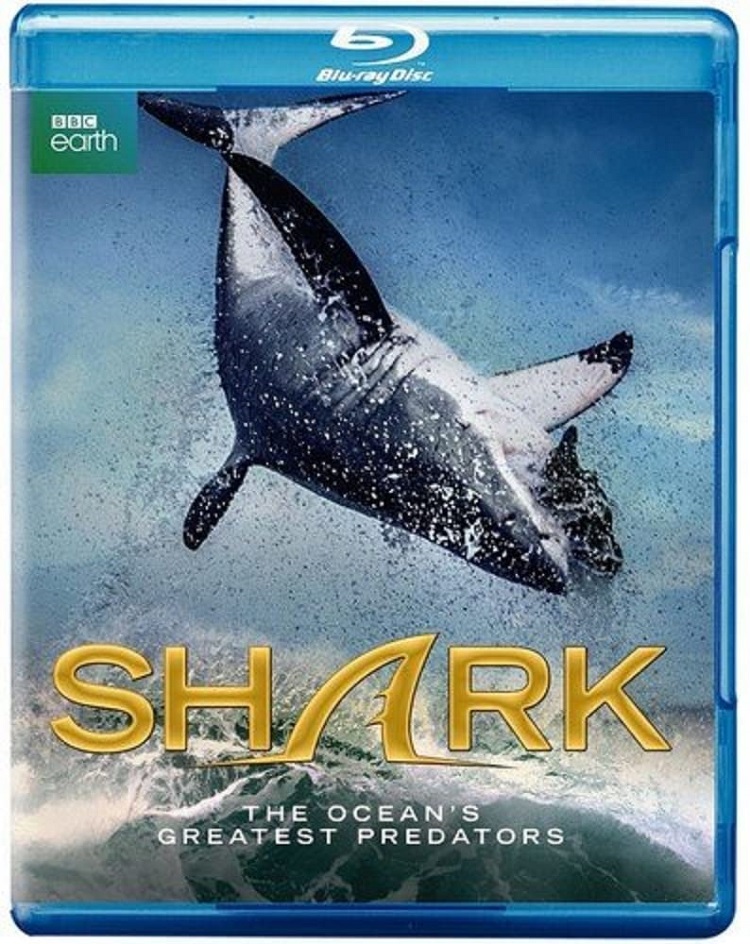
Fresh off reviewing BBC’s Planet Ant, I find myself confronted with a series about a much larger, deadlier animal up for investigation — the timeless predators who rule the seas detailed in Shark, another new chapter in the BBC Earth series. From scary Ragged-Tooths to Makos that could outrun Usain Bolt, Paul McGann narrates four one-hour segments that cover everything from what sharks eat to how they interact and socialize, and how these creatures who’ve barely evolved since the age of the dinosaurs are paving the way for scientific breakthroughs.
Spinning up the disk reveals two “parts” in the episode list. Part one brings you face to face with a dozen or so species of shark, including Ragged-Tooths, Black Tips, Tasseled Wobbegongs, Makos, Frilleds, Goblins, Epaulettes, and of course, Great Whites. This hour’s focus is on the sheer variety of animals that fit under the “shark” umbrella, their hunting strategies, and how they’ve adapted over millions of years. You do see some shark-feeding carnage, but it’s edited in a way that lets you grasp the ferocity of the creatures without being grossed out with guts and entrails.
Part two covers the less violent side of the shark world, ranging from courtship rituals, body language, social gatherings, mating, and how offspring are born and raised. By and large, sharks are solitary creatures, able to fend for themselves from the moment they swim into the sea. Some take shelter in areas predators have trouble accessing, not braving open water until they’re much bigger and have honed their hunting skills. Some sharks lay eggs while others give live births akin to mammals. We’re able to watch the development of a shark from within its egg, from the moment it’s dropped off by mom to its emergence into the sea.
The last 10 minutes of each episode explores “Shark Diaries,” where you go behind the scenes to find out how they got their footage and hear some commentary on the experience. The quad-copter with a camera dangling below to enter otherwise impassable areas of young sharks without startling them was particularly cool.
There are also two substantial extras, “Beneath the Surface” and “Beyond the Bite.” The former discusses new technology and techniques being used to interact with sharks and experiment on their behavior, revealing fascinating depth to their personalities and sociality. The latter explains the trials and experience the film crew had over two years capturing the footage used in the series, and how that experience changed their worldview and how they perceive sharks (hint: they’re not all ravenous killing machines, but can actually be charismatic). Each of these segments clocks in at between 50 and 60 minutes and contains both new footage and a few scenes show in parts one and two. Given the run time and the overall breadth of content, these certainly offer more than your average on-disc extras.
Also while perusing Planet Ant, I longed for some high definition picture and sound. Being a Blu-ray, Shark doesn’t disappoint in this category. Every little tendril and fish scale and bit of seaweed is lovingly captured for display on your screen. Spielberg only wishes he had shots this good for Jaws.
Overall it’s a nice package. Not too long, and not too short, giving a wide cross-section of types of sharks and how they compare and contrast with one another. If you’re already a fan of BBC Earth’s documentaries, this is a solid addition to your collection. If you’re dabbling with the series and don’t want to take a big plunge, Shark is a bite-sized sampler of the quality, detail, and splendor you’ll find in the rest of the series.